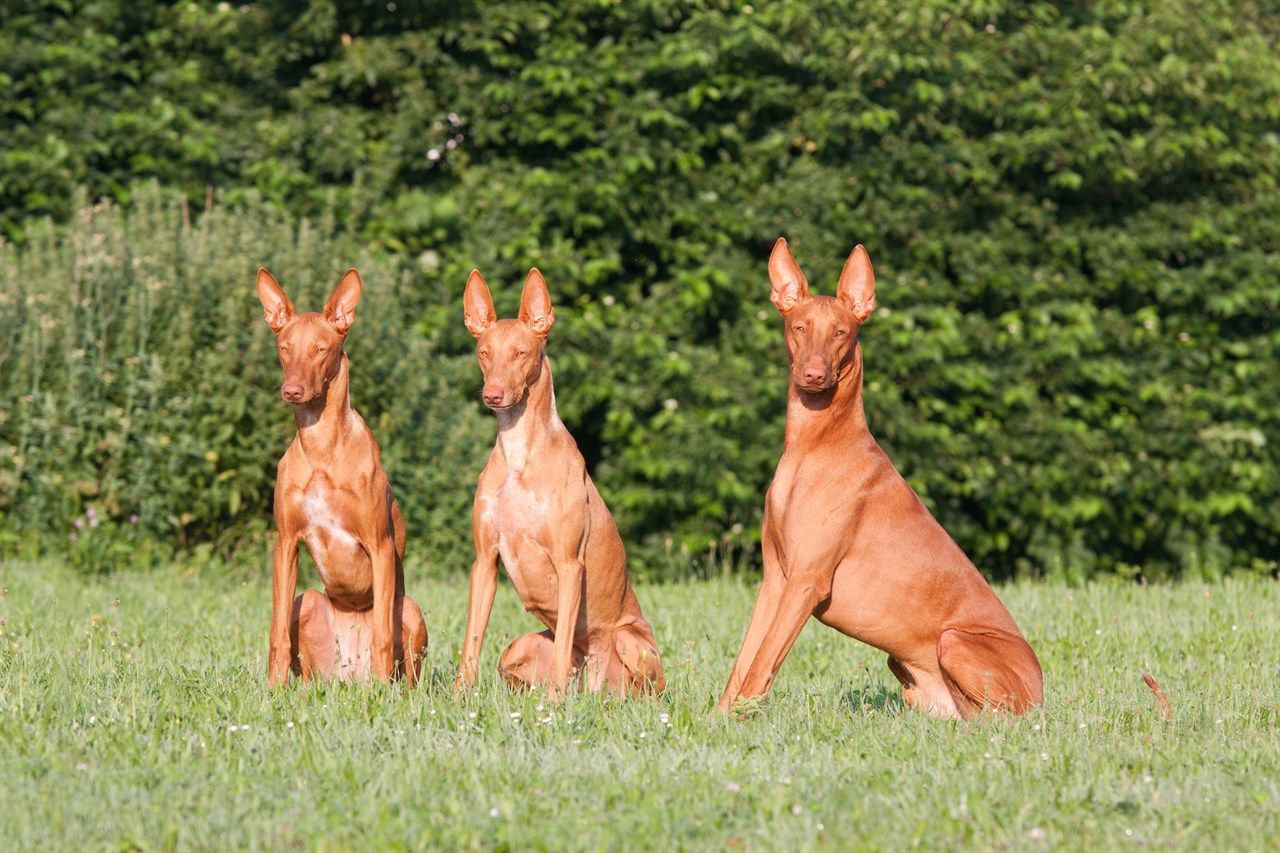Common Health Issues of the Pharaoh Hound: A Closer Look at Their Well-Being

The Pharaoh Hound is generally a healthy breed with a robust constitution, but like all dog breeds, they can be prone to certain health issues. Being aware of these common health concerns can help you provide the best care for your Pharaoh Hound and address potential issues promptly. Here are some of the health issues commonly associated with the Pharaoh Hound:
1. Hip Dysplasia
Hip dysplasia is a genetic condition that can affect the hip joints of dogs. It occurs when the hip joint doesn't develop properly, leading to abnormal wear and tear of the joint over time. While not extremely common in Pharaoh Hounds, it's essential for breeders to screen for this condition to reduce its prevalence within the breed.
2. Patellar Luxation
Patellar luxation is a condition where the kneecap (patella) can dislocate from its normal position. This condition can cause lameness and discomfort in affected dogs. Pharaoh Hounds can be prone to patellar luxation, so regular veterinary check-ups are essential to detect and manage this issue.
3. Progressive Retinal Atrophy (PRA)
PRA is a group of inherited eye diseases that can lead to vision loss and, eventually, blindness. Pharaoh Hounds are among the breeds that may carry a genetic predisposition to PRA. Regular eye exams by a veterinary ophthalmologist can help identify and manage this condition.
4. Dermoid Sinus
Dermoid sinus is a congenital condition in which a tubular structure forms under the skin along the back or neck. While it's relatively rare in Pharaoh Hounds, it can be a serious condition that requires surgical correction.
5. Allergies
Pharaoh Hounds can be prone to allergies, including food allergies and environmental allergies (such as pollen or dust mites). Allergic reactions can manifest as skin issues, ear infections, or gastrointestinal problems. Identifying and addressing allergies with your veterinarian is crucial for your dog's comfort and well-being.
6. Bloat (Gastric Torsion)
Bloat is a life-threatening condition that can occur in deep-chested breeds like the Pharaoh Hound. It involves the stomach filling with gas and twisting on itself, which can lead to a blockage of blood flow. Immediate veterinary intervention is necessary to treat bloat.
7. Epilepsy
Some Pharaoh Hounds may be prone to epilepsy, a neurological disorder that can cause seizures. If your dog experiences seizures, consult with your veterinarian to determine the cause and appropriate treatment.
8. Anesthesia Sensitivity
Pharaoh Hounds can be sensitive to certain anesthesia drugs, so it's essential to inform your veterinarian of their breed and any sensitivities when surgical procedures are necessary.
Regular Check-ups and Preventive Care
To ensure the overall health and well-being of your Pharaoh Hound, schedule regular check-ups with a veterinarian experienced in treating the breed. Regular examinations, vaccinations, dental care, and preventive measures can help identify and address health issues promptly, ensuring your Pharaoh Hound enjoys a long and healthy life.
Remember that responsible breeding practices that prioritize health screenings and genetic testing can help reduce the prevalence of these inherited conditions within the Pharaoh Hound breed.
Pharaoh Hound puppies for sale
- Find Pharaoh Hound puppies for sale in ACT
- Find Pharaoh Hound puppies for sale in NSW
- Find Pharaoh Hound puppies for sale in NT
- Find Pharaoh Hound puppies for sale in QLD
- Find Pharaoh Hound puppies for sale in SA
- Find Pharaoh Hound puppies for sale in TAS
- Find Pharaoh Hound puppies for sale in VIC
- Find Pharaoh Hound puppies for sale in WA